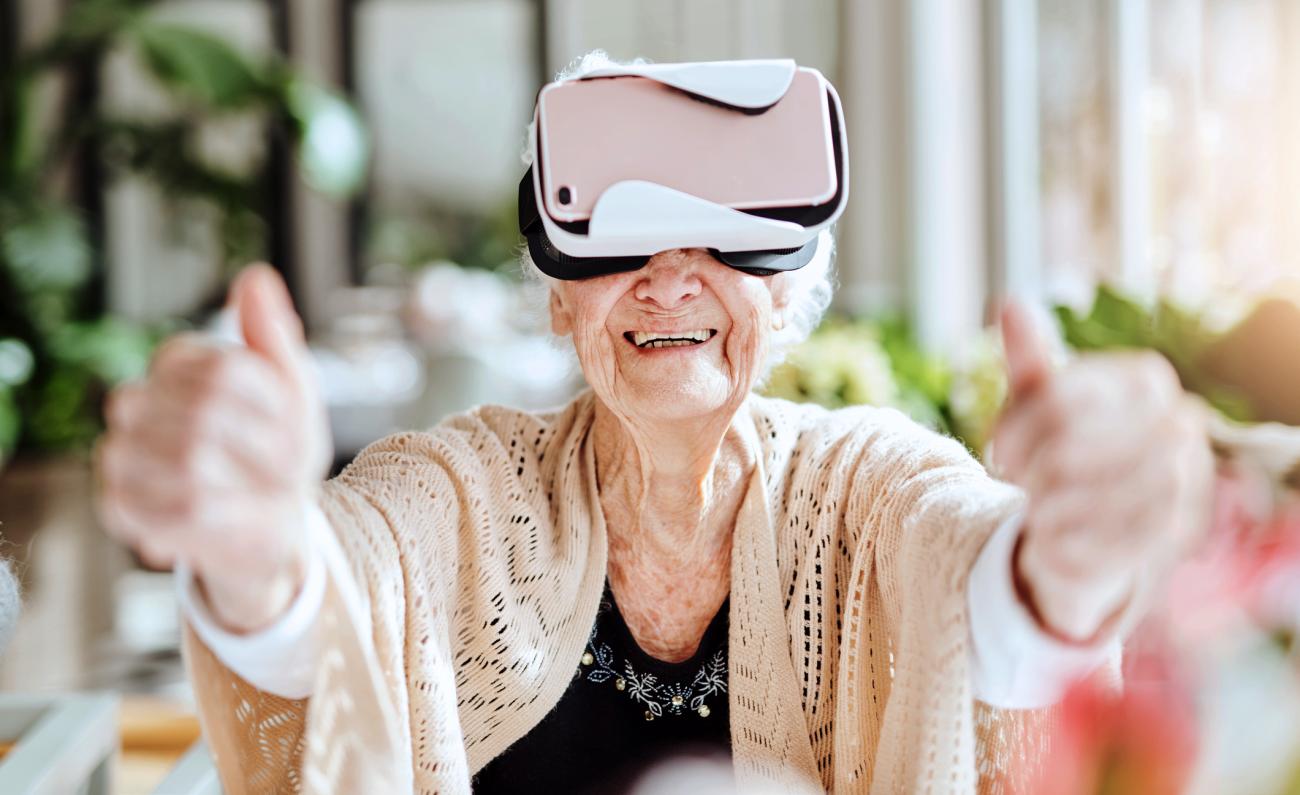
Our experts highlight promising advancements in dementia care and emphasize the importance of improving access to technologies to enhance patient and caregiver quality of life.
As Canada’s population of older adults grows, so do the rates of dementia. Researchers across various fields are investigating new ways to improve the quality of life for people living with this degenerative disease, such as virtual reality (VR) and wearable devices technologies. Vancouver Coastal Health Research Institute experts Dr. Lillian Hung and Karen Lok Yi Wong share some of the most promising advancements in dementia care and discuss the importance of improving access to these emerging technologies.
Q: Can VR help preserve cognitive function and reduce anxiety?
A: VR has shown great potential in reducing anxiety for patients with dementia. Immersive technologies can engage cognitive abilities, evoke memories and create calming environments that help ease anxiety. In our recent dementia-friendly TV project at Vancouver General Hospital, we used video projections to create immersive experiences for patients with moderate-to-severe dementia. These videos sparked conversations and interactions, which supported the residents’ cognitive function. Additionally, VR headsets have been beneficial in combating loneliness and promoting social engagement in long-term care homes.
Q: Are smart home technologies useful in creating a safer and more supportive environment for people with dementia?
A: Yes, smart home technologies can enhance safety and support for people with dementia. They offer automated monitoring, reminders, fall detection and social companionship, which help maintain routines, prevent accidents and ensure a comfortable environment. This not only reduces the burden on caregivers but also promotes independence. Advanced technologies like Tochie, Telerobot, Aether and Lovots are designed to address specific challenges faced by those living with dementia.
Q: How do wearable devices and biosensors enhance safety for those living with dementia?
A: Wearable technologies improve the well-being for people with dementia by continuously tracking health metrics, allowing care providers to personalize treatment plans and strategies. For example, smart rings monitor heart rate variability, providing early detection of issues like stress or cardiac issues. Other devices, like the bed sensor used in our SleepSense® project, are being studied for their ability to unobtrusively assess the sleep patterns of older adults.
Q: What are the most promising technological breakthroughs currently transforming care and support for people with dementia?
A: One of the most exciting breakthroughs is the development of artificial intelligence (AI)-enabled robots, such as social robots, service robots and assistive robots, which are transforming care settings for people living with dementia.
For example, Aether, an AI-enabled service robot, supports people with intellectual disabilities and dementia by identifying potential hazards and making their environment safer. The robot also interacts with residents, holding conversations and playing interactive games through its ChatGPT function, which enhances psychosocial well-being and quality of life.
Q: How accessible are these life-changing technologies to people with dementia and their families, and what steps can be taken to improve access?
A: Research is ongoing to improve the accessibility of these technologies. Our lab recently published a paper discussing the fairness of access to dementia-friendly technologies, in which we highlight three key factors: affordability; the diverse needs of technology users (such as culture, language and abilities); and the inclusion of people with dementia and their families in the design and implementation process. By considering all three components, we can make these technologies more accessible to everyone.




